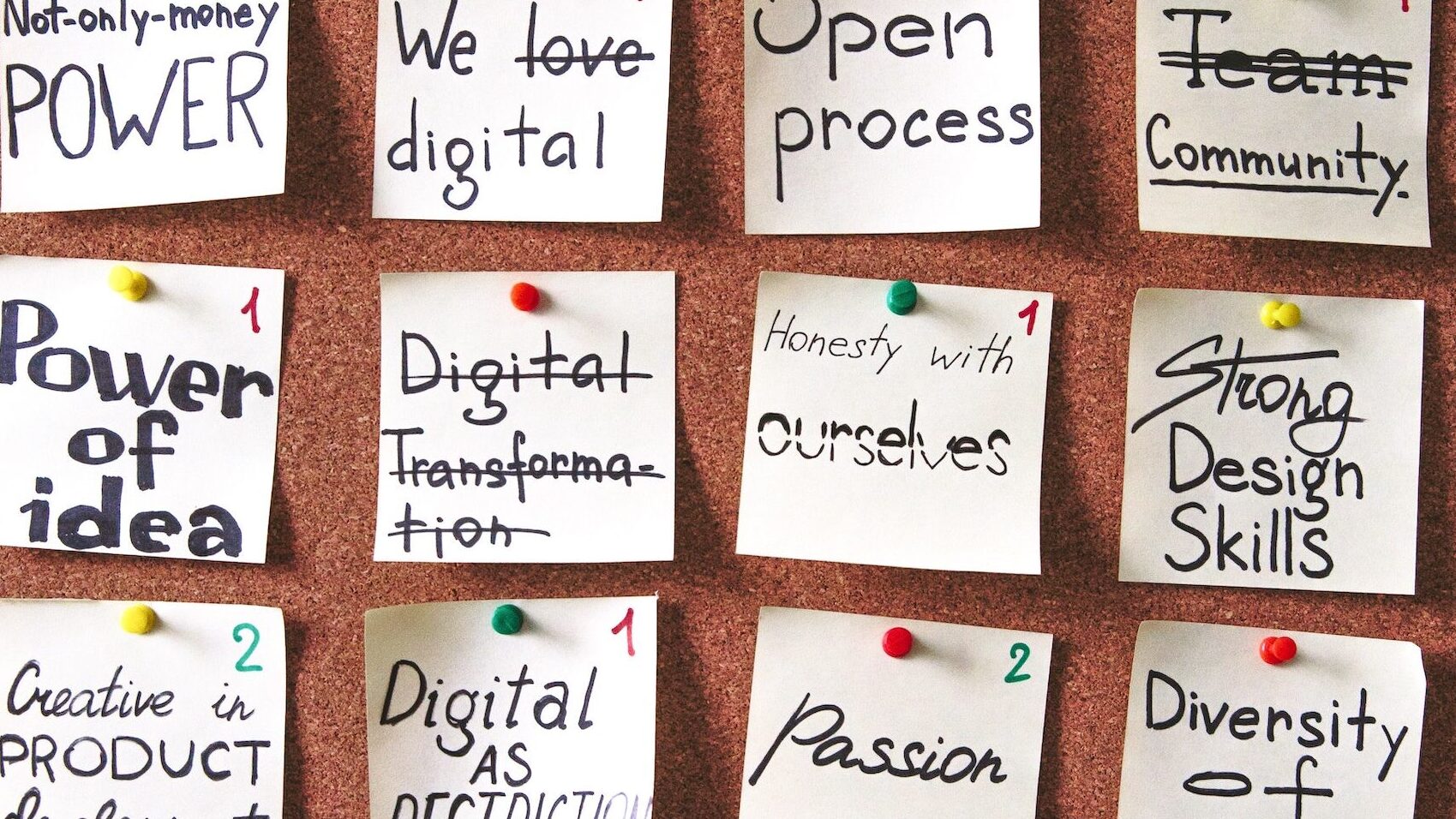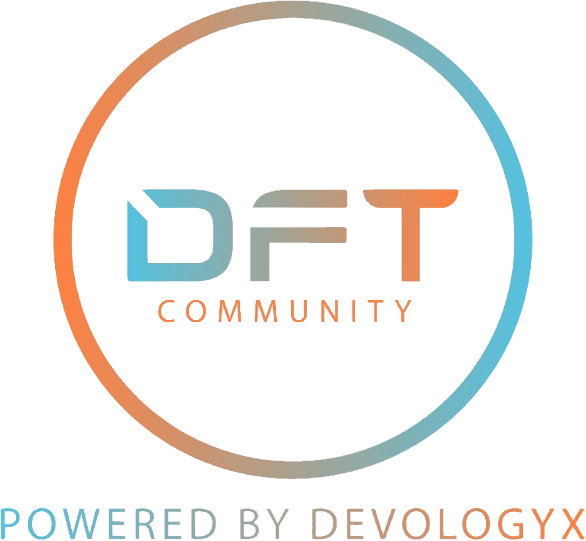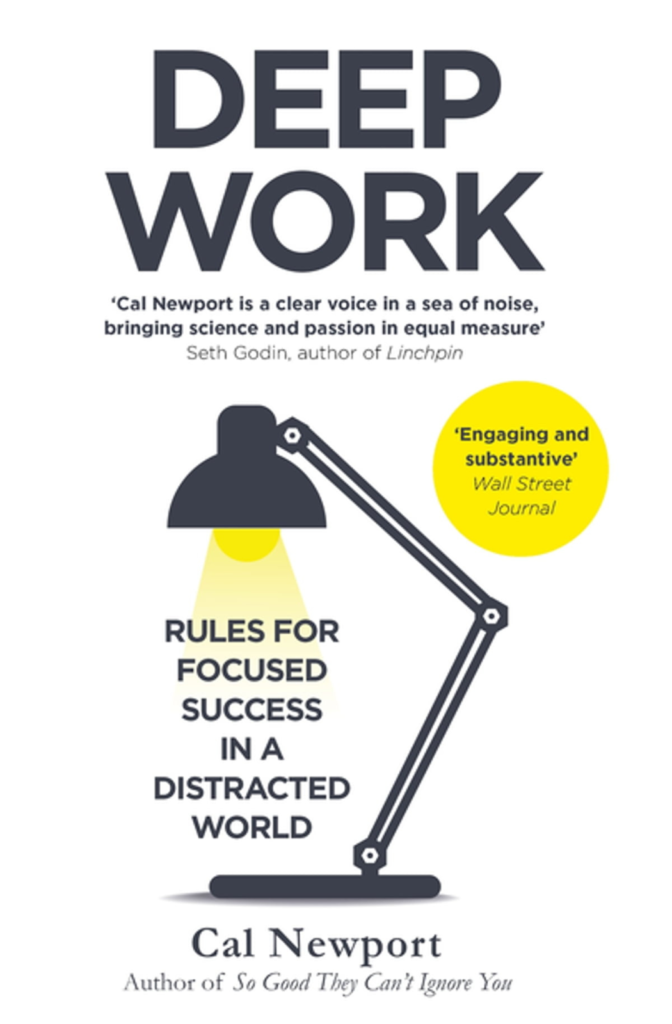Deep Work is a comprehensive and practical guide that will help you make your concentration skills better by avoiding distractions or setting timers. The book was published on January 5th, 2016. Cal Newport explains the principles that will guide you in improving your work by focusing on tasks and providing strategies to help you beat distractions. These principles create awareness of embracing boredom while at work and ways of quitting social media.

HOW THIS BOOK HELPED US?
Deep Work helped us master the two core abilities for thriving in today’s economy. These abilities are the ability to quickly learn and master hard things and the ability to produce at an elite level. The book also taught us that focusing intensely without distractions is the only way to learn hard things.
THE BOOK EXPLAINED IN UNDER 60 SECONDS
- Deep Work: these are activities performed in a state of distraction-free concentration that push your cognitive capabilities to their limit. These efforts create new value in your life, improve your skill and are hard to replicate.
- Shallow Work: Non Cognitively demanding, logistical-style tasks, often performed while distracted. These efforts tend not to create much new value in the world and are easy to replicate.
- Deep work is a guide that provides insight into staying competitive in the fast-growing economy and ever-evolving technological world.
TOP THREE QUOTES
- “Efforts to deepen your focus will struggle if you don’t simultaneously wean your mind from a dependence on distraction.”
- “To simply wait and be bored has become a novel experience in modern life, but from the perspective of concentration training, it’s incredibly valuable.”
- “What we choose to focus on and what we choose to ignore, play a great role in defining the quality of our lives.”
BOOK SUMMARY AND NOTES
PART ONE: THE IDEA

Chapter One: Deep Work Is Valuable
Deep work involves a set of professional activities performed in a distraction-free state that push your cognitive capabilities to their limit. Deep work creates intellectual value by focusing on a cognitively demanding task. These activities improve your skills, create new value and can not easily be replicated.
When experiencing a state of deep work, your results are unique and cannot be copied by another individual. Deep Work is an essential skill in our economy, although it’s not the only valuable skill.
The two core abilities that will make you a winner in the new economy and depend on how you perform deep work are; the ability to quickly master hard things and the ability to produce at an elite level in terms of quality and speed.
If you haven’t mastered the foundation skill of deep work, you’ll struggle to earn hard things or produce at an elite level. The dependence of these abilities on deep work isn’t immediately apparent, it requires a closer look at the science of learning, concentration and productivity.
- The ability to quickly master hard things
Your ability to learn complex issues quickly is essential in your effort to master and execute any given skill. Learning requires intense concentration; let your soul be all intent on whatever is established in your mind. To advance in your understanding of your field, you must tackle the relevant topics systematically and focus intensely without distraction.
2. The ability to produce at an elite level, in terms of both quality and speed
If you want to become a superstar or a professional, mastering the necessary skills is vital but insufficient. You must then transform that latent potential into tangible results that people value and appreciate. For example, many developers can program computers well, but David Hansson leveraged this ability to produce Ruby on Rails, a project that made his reputation. Ruby on Rails required Hansson to push his current skills to their limit and produce unique, valuable, concrete results. Cal Newport outlines a formula using Hansson as an example for acquiring quality at the highest level. High-Quality Work Produced = (Time Spent) x (Intensity of Focus).
Favourite quote of the chapter: “Deep Work: Professional activities performed in a state of distraction-free concentration that pushes your cognitive abilities to their limit. These efforts create new value, improve your skill, and are hard to replicate.”
Chapter Two: Deep Work is rare

The rareness of deep work is not due to some fundamental weakness of the habit. When you look closely at why we embrace distraction in the workplace, you’ll find the reasons are more arbitrary than we might expect. The objective is to convince you that although our current embrace of distraction is a natural phenomenon, it’s built on an unstable foundation and can be easily dismissed once you decide to cultivate a deep work ethic.
Here are two workplace distracting behaviours that encourage unproductive activities:
- The principle of least resistance
If you work in an environment where you can get an answer to a question or a specific piece of information immediately. This makes life easier than putting things aside for a while and turning your attention elsewhere. The Principle of Least Resistance supports work cultures that save you from the short-term discomfort of concentration and planning at the expense of long-term satisfaction and the production of real value.
2. Busyness as a proxy for productivity
In the absence of clear indicators of productivity and value in your job. You’ll turn back toward shallow work to keep yourself busy as a representative of productivity. For example, suppose you schedule and attend meetings constantly or weigh in on instant message systems within seconds when someone poses a new question. In that case, you’ll seem busy publicly because you’re using busyness as a proxy for productivity. Therefore, these behaviours seem crucial for convincing yourself and others that you’re doing your job well.
Favourite quote of the chapter: “Clarity about what matters creates clarity about what does not.”
Chapter Three: Deep Work is meaningful

What you choose to focus on and what you choose to ignore plays a significant role in defining the quality of your life. In other words, what you pay attention to shapes your world. You place a lot of emphasis on circumstances around you assuming that what happens to you or fails to happen determines how you feel. From this perspective, the small-scale details of how you spend your day seem unnecessary because the large-scale outcomes matter.
Suppose you can naturalise deep focus at work, this will prevent you from observing many smaller and less pleasant tasks that inevitably populate your life, and your work will become more enjoyable. The best moments usually occur when your body or mind is stretched to its limits in a voluntary effort to accomplish something difficult and worthwhile.
Therefore, when you intensely focus on your work, your job becomes more accessible to enjoy than free time. It has built-in goals, feedback rules, and challenges, all of which encourage you to become involved in your work, concentrate and lose yourself. On the other hand, free time is unstructured and requires much greater effort to be shaped into something that can be enjoyed.
Favourite quote of the chapter: “Who you are, what you think, feel, and do, what you love—is the sum of what you focus on.”
PART TWO: THE RULES

Rule 1: Work Deeply
Unfortunately, it is not that simple to replace distraction with focus. To realize why this is true, look at one of the main obstacles to going deep: the urge to turn your attention toward something is more superficial.
Most people recognize that this urge can complicate efforts to concentrate on hard things, but most underestimate its regularity and strength. To make deep work the habit, put routines and rituals that will help you minimize the friction and willpower necessary to transition into a state of pure concentration. Deploy routines like working in a quiet place at the same time or working in the same space when working on your deep work tasks. You can also try to make deep work a priority, support this decision with the strategies that follow or strategies of your own inventing that are prompted by the same principles. This will increase the probability that you’ll succeed in making deep work a crucial part of your professional life.
Choose your philosophy for integrating deep work into your professional life, and be careful to select a philosophy that fits your particular circumstances. A mismatch here can derail your deep work habit before it has a chance to solidify.
Here are some deep work philosophies that you can choose from.
- The monastic Philosophy: this is the most dedicated type of deep work and involves spending all of your working hours on a singularly high-level focus. Isolate yourself for long periods without distractions; no shallow work is allowed.
- The bimodal philosophy asks for a high level of deep work while allowing you to keep other activities valuable to you.
- The rhythmic philosophy: this works for people with a stable schedule. Predict how your days will look like and take 3-4 hours every day to perform deep work on your projects.
Favourite quote from the chapter: “The purpose of the deep work chamber is to allow for total focus and uninterrupted workflow.”
Rule 2: Embrace Boredom
This section will help you improve the current limit of your ability to concentrate. You‘ll struggle to strengthen your focus if you don’t concurrently wean your mind from depending on distractions. Therefore, learn to live without distractions. You tend to crave distraction when your brain is wired to it.
To succeed with deep work, you must rewire your brain to defy distracting stimuli. However, this does not mean that you have to do away with distracting behaviours but instead eliminate the ability of such behaviours to pirate your concentration.
The ability to concentrate intensely is a skill you have to learn. Take care of your concentration outside your intense work sessions like athletes take care of their bodies outside training. Don’t give in to distractions at the first sign of boredom because it will become challenging to cultivate the required concentration for serious work. In case you want to get a deep task done in time, consider working with great intensity. This intensity will keep you from email breaks, web browsing or visiting the coffee machine now and then. Start by trying this experiment no more than once a week. This will give your brain practice with intensity but also give it time to rest between tasks.
Favourite quote of the chapter: “Efforts to deepen your focus will struggle if you don’t simultaneously wean your mind from a dependence on distractions.”
Rule 3: Quit Social Media
Willpower is limited. Enticing tools such as social media apps or browser tabs pull your attention, making it harder to maintain focus on something important. To master the art of deep work, you must take back control of your time and attention from the many diversions that attempt to steal them.
Social media tends to break up your time and reduce your concentration, making it hard to improve your ability to work deeply. When you concentrate on low-impact services like social media, you waste time you could be spending on higher-impact activities. Create social media isolation by giving yourself a ban from social media though you don’t have to delete your accounts permanently. Start by eliminating the apps for thirty days most importantly, don’t mention online that you’ll be quitting social media. After the thirty-day self-isolation from social media, ask yourself the following two questions about each of the services you temporarily quit:
- Would the last thirty days have been notably better if I had been able to use Social Media?
- Did people care that I wasn’t using Social Media?
If the answer to both questions is “no”, then consider quitting the service permanently. If your answer is a clear “yes,” continue using the service.
If your answers are open to two or more interpretations, then it’s up to you whether you should return to the service or lean towards quitting.
This strategy works specifically on social media because, among the various network tools that can claim your time and attention, these services can mainly devastate your quest to work deeper if used without limit.
Favourite quote of the chapter: “If you service low-impact activities, therefore, you’re taking away time you could be spending on higher-impact activities.”
Rule 4: Drain the Shallows
You have to drain the shallows if you are serious about deep working. Shallow work is inevitable and impossible to eliminate. However, a lot of shallow work can be removed to maximize your time on deep work. In other words, schedule time for deep work and spend as little time as you can on shallow work. Treat shallow work with caution because its damage is often widely underestimated and its importance vastly overestimated. Confine shallow work at a point where it does not block your ability to take full advantage of the more profound efforts that ultimately determine your impact. Here are strategies that will help you act on this reality.
- Schedule every minute of your day
This strategy is the recognition that a deep work habit requires you to treat your time with respect. The first step is to decide what you will do with every minute of your workday. It’s natural, at first, to resist this idea, as it’s undoubtedly easier to continue to allow the twin forces of internal whim and external requests to drive your schedule. But you must overcome this distrust of structure if you want to approach your true potential as someone who creates things that matter.
- Quantify the depth of every activity
The advantage of scheduling your day is that you can influence how much time you spend on shallow activities. However, extracting this insight from your schedules can be tricky in practice as it’s not always clear exactly how shallow you should consider a given task. This strategy aims to give you an accurate metric for the time spent on shallow or deep work. This will allow you to make clear and consistent decisions about where given work tasks fall on the shallow-to-deep scale.
- Ask your boss for a shallow work budget
A crucial question rarely asked: What percentage of your time should you spend on shallow work? This strategy suggests that you ask it. If you have a boss, have a conversation about this question. You’ll probably have to first define for him or her what “shallow”, and “deep” work means. If you work for yourself, ask yourself this question. In both cases, settle on a specific answer and stick to this budget.
Favourite quote of the chapter: “Your goal is not to stick to a given schedule at all costs; it’s instead to maintain, at all times, a thoughtful say in what you’re doing with your time going forward—even if these decisions are reworked again and again as the day unfolds.”
HOW THIS BOOK CAN HELP SOFTWARE DEVELOPERS?
“Deep Work” by Cal Newport is a book that outlines strategies for working with intense focus and productivity in a world full of distractions. For software developers, this can mean setting aside uninterrupted blocks of time to tackle complex coding tasks, minimizing distractions like email and social media, and cultivating habits that support deep work. By implementing the principles of deep work, software developers can improve the quality of their work, increase their productivity, and ultimately achieve greater success in their careers.


